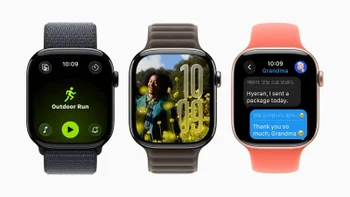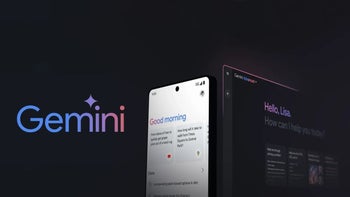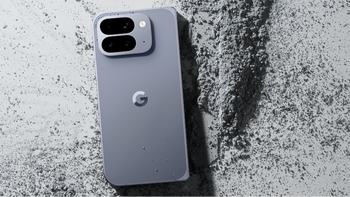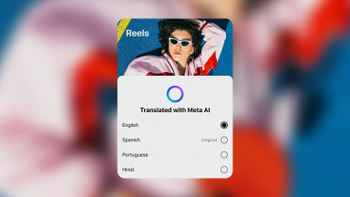Stop the Google Drive Terms of Service Bogeyman hunt
This article may contain personal views and opinion from the author.

Everyone loves to stir the pot and engage in some solid fear-mongering whenever it comes to privacy on the Internet, especially when it comes to Google products and services, but it needs to stop, because all we're getting are biased voices that benefit from having people riled up about any potential problem. As we explained back when Google first united its privacy policies, there is huge value to be had for you by Google using this language, and now it seems we need to give a refresher on the other side of that equation: the possible threats. Of course, there are those out there already trying to paint Google's TOS as trouble, as we told you earlier today.
Context
Before we take a look at what people see as a problem, let's just take a look at the points of Google's policy that continually get overlooked. First, Google expressly states in its Terms of Service:
"You retain ownership of any intellectual property rights that you hold in that content. In short, what belongs to you stays yours."
That's pretty plain English stating that what is yours is yours, no troubles there.
Second (and most commonly overlooked) is from Googles Privacy Policy, which states:
"We do not share personal information with companies, organizations and individuals outside of Google unless one of the following circumstances apply: with your consent; with domain administrators; for external processing; for legal purposes."
So, if you take those two things together, here's what you get (and this applies to Google Drive and most other Google products): you own your data, and no one gets to see your data unless you say so, someone higher in your organization says so (domain admin), or a judge says so (legal purposes). The external processing seems like an outlier, but really that's to cover hooked in services. For example, Google has to be able to share your data with Aviary if you have the app connected to your Google Drive.
Out of context
While people tend to ignore, or downplay the importance of the above sections of Google's terms and policy, there is one piece of the Terms of Service that is always quoted. The part of the TOS that is always taken out of context is this:
When you upload or otherwise submit content to our Services, you give Google (and those we work with) a worldwide license to use, host, store, reproduce, modify, create derivative works (such as those resulting from translations, adaptations or other changes we make so that your content works better with our Services), communicate, publish, publicly perform, publicly display and distribute such content. The rights you grant in this license are for the limited purpose of operating, promoting, and improving our Services, and to develop new ones. This license continues even if you stop using our Services (for example, for a business listing you have added to Google Maps).
If you didn't have the context from above, that sounds pretty scary, right? It is often said that this part of the TOS underminds the pieces quoted above, because it is "too vague", which is only true insofar as the terms must cover 60+ products, but actually it is quite the opposite. Legal experts claim it gives Google too much leeway in using your files, but that simply isn't true given the terms of Google's Privacy Policy.
The first bunch of verbs ("host, store, reproduce, modify, create derivative works") all cover the process of making your content useful. If Google can't host or store your content, it disappears, which is of no help to you. If Google can't reproduce your content, it would be impossible to have the syncing across devices that makes Google Drive, Music, or Photos useful. Modifying and derivative works covers anything from auto-correct in a document to translations or fixing the color of a photograph.
Then, the last few pieces ("communicate, publish, publicly perform, publicly display and distribute") covers being able to share your content, but only if the requirements are met from the Privacy Policy above. This means that Google can post your photos, videos or docs to Google+, but only if you say so (or for some odd reason a judge says so.) The same goes for e-mail, or even sharing a link.
The Bogeyman vs actual harm
Knowing all of that, what exactly is the problem? The problem is that people want to find fault without due cause. People love to talk about the potential threats without looking at the likelihood or the possibility that those threats could become real. Sure, it's possible that Google will send the pictures of you sunburned and crying on a Jamaican beach to everyone on Earth, or use it as a Google Doodle, but that would give you full rights to sue Google for breaking its own Privacy Policy. Everyone loves to look for the Bogeyman in all of this, but here's what people never consider: what would be the benefit of Google misusing your data?
Google has already seen the negative side of making a mistake with user data after the debacle of Google Buzz, and that was just a mistake, not an active misuse of content. Google's entire business plan relies on having a good relationship with users. If people don't trust Google, Google gets no data, and can't sell you ads. Google could certainly take advantage of that trust, but the repercussions would hurt every product that Google has.
So, here's a crazy idea: let's not pounce on Google (or any other company for that matter) for a potential problem, if that company has given no reason to ever be mistrusted. We get huge amounts of value from these products: they allow us to be more social, more productive, learn easier, and find entertainment any time we want. Sure, any of these companies can treat us badly, or misuse our data, but there's no reason to do that. As we've explained before, there is a big difference between "personal data" and "personally identifiable data", and the key to the personal data trade is for companies to use the former, while protecting the latter. So far, Google has done a very good job of that, so maybe we should wait and see if Google actually does something wrong, rather than attacking just because we can imagine the possible Bogeyman.
Follow us on Google News










![If you woke up to SOS mode on your Verizon phone, you weren't alone [UPDATED]](https://m-cdn.phonearena.com/images/article/174761-wide-two_350/If-you-woke-up-to-SOS-mode-on-your-Verizon-phone-you-werent-alone-UPDATED.webp)

Things that are NOT allowed:
To help keep our community safe and free from spam, we apply temporary limits to newly created accounts: